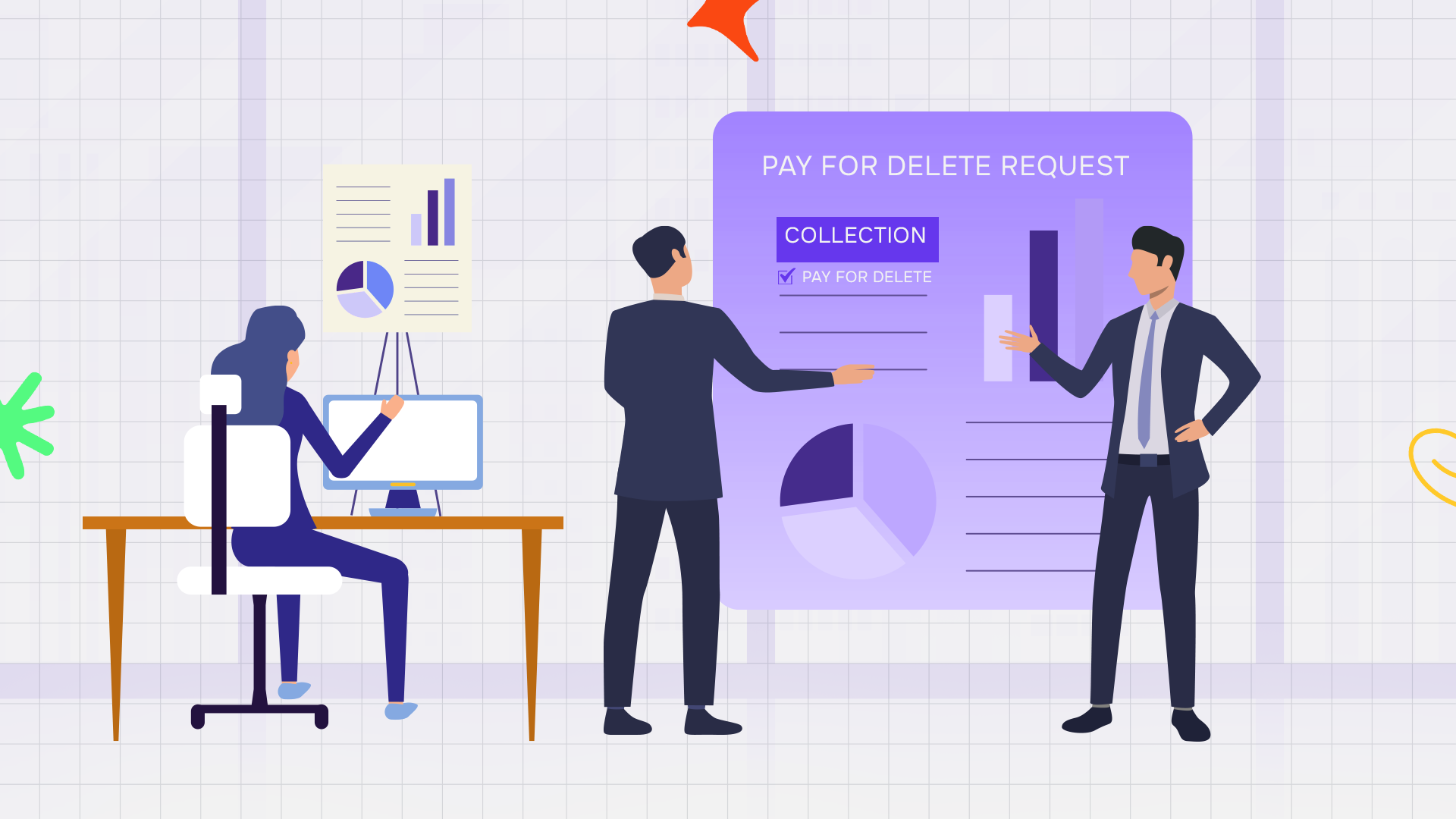Is ‘Pay for Delete’ Really the Best Way to Remove Collections from Your Credit Report?
‘Pay for delete’ is a negotiation strategy where you offer to pay a debt collector in exchange for removing a collection account from your credit report. Discover how it works, its pros and cons.

‘Pay for delete’ is a negotiation strategy where you offer to pay a debt collector in exchange for removing a collection account from your credit report. While it may seem like a quick fix to clean up your credit history, it’s not always guaranteed to work and could have legal and financial drawbacks.
Many consumers explore ‘pay for delete’ to remove collections from their credit reports, hoping for an instant credit score boost. While some collection agencies may agree, others follow strict credit reporting policies that make removal unlikely. Understanding how collections impact your credit and whether ‘pay for delete’ is the best option is crucial before making a decision.
If you are also caught wondering if 'pay for delete’ is the best way to remove collections from your credit report, then you are at the right blog. This post explores how ‘pay for delete’ works, its pros and cons, alternative credit repair strategies, and the best ways to remove collections from your credit report.
How Does ‘Pay for Delete’ Work?
When a debt goes into collections, it appears on your credit report, negatively impacting your credit score. ‘Pay for delete’ is a request made to a collection agency, asking them to remove the collection account from your report in exchange for full or partial payment.
Here’s how the process typically works:
- You Negotiate with the Collection Agency – You send a formal ‘pay for delete’ letter, offering to settle the debt under the condition that they remove the collection from your credit report.
- The Agency Decides Whether to Accept or Decline – Some agencies agree, while others follow policies that prevent them from deleting accurate information.
- If Accepted, You Make Payment – Once the agency receives payment, they may request the credit bureaus to remove the collection account.
- Potential Deletion from Your Credit Report – If the agency follows through, the account disappears from your report. However, success is not guaranteed, and some bureaus may still retain the record.
Does ‘Pay for Delete’ Improve Your Credit Score?
While having a collection account removed may help your credit score, it doesn’t always lead to an instant improvement. Credit scoring models like FICO and VantageScore already factor in whether a debt is paid or unpaid. Even if a collection is deleted, the overall impact on your score depends on other factors in your credit history.
A paid collection may still be visible on your report, and removing one account won’t erase years of missed payments. If your credit report contains multiple negative items, eliminating a single collection won’t necessarily lead to a dramatic increase in your score. However, for some individuals, especially those with limited credit history, removing a collection can make a difference in their creditworthiness.
Factors That Influence Credit Score Changes
These are some crucial factors that affect your credit score and cause it to change.
Age of the Collection
Older accounts have less impact on your credit score than recent ones. If a collection is several years old, its removal might not have a significant effect.
Credit Scoring Model Used
Some models, like newer FICO versions, ignore paid collections, while older models and VantageScore may still factor them into your credit score calculation.
Other Negative Accounts
If you have multiple late payments, charge-offs, or a history of missed payments, removing one collection may not significantly boost your score. Your overall credit health matters more than a single account deletion.
Credit Utilization & Payment History
Even if a collection is removed, maintaining a low credit utilization ratio and making on-time payments consistently will have a much greater impact on improving your credit score over time.
Why ‘Pay for Delete’ Isn’t a Guaranteed Solution
While ‘pay for delete’ may work in some cases, it’s not a guaranteed or always legal option. Here’s why:
Collection Agencies Aren’t Required to Remove Accurate Information – Credit bureaus and lenders follow the Fair Credit Reporting Act (FCRA), which mandates that accurate negative information can remain on your report for up to seven years.
- Not All Agencies Accept ‘Pay for Delete’ Requests – Many agencies follow strict policies that prevent them from removing collection accounts even after payment.
- Lenders May Still See Your History – Even if a collection is deleted from your report, lenders may have access to past delinquencies through internal records.
- It May Not Improve Your Credit as Expected – Credit scoring models already weigh paid collections differently, so deletion doesn’t always lead to a major score boost.
- Potential Ethical and Legal Concerns – Some lenders consider ‘pay for delete’ unethical and may report attempts to manipulate credit reports.
Alternative Ways to Remove Collections from Your Credit Report
If ‘pay for delete’ isn’t your best option, consider these proven strategies to improve your credit score:
1. Verify the Debt for Accuracy
Before paying any collection, request debt validation from the collection agency. If the debt is incorrect or cannot be verified, you may dispute it with the credit bureaus to have it removed.
2. Negotiate a ‘Paid in Full’ Status Instead
If the agency won’t agree to a ‘pay for delete,’ ask if they will report the debt as “paid in full” rather than “settled.” A fully paid account looks better on your credit history.
3. Dispute Inaccurate or Outdated Information
Under the FCRA, you have the right to dispute any incorrect or outdated collection accounts. If a collection remains on your report after the legal reporting period, you can request its removal.
4. Wait for the Collection to Age Off
Collections typically remain on your credit report for up to seven years. If the account is close to its expiration date, waiting for it to drop off may be the best course of action.
5. Work with a Credit Repair Professional
Credit repair companies like Credit Veto can help you navigate disputes, negotiate with creditors, and develop personalized strategies to improve your credit health. If you're looking for a reliable credit repair solution, we can help you take control of your financial future.
How Credit Veto Can Help You Take Control of Your Credit
If you’re struggling with collections and don’t know the best way to improve your credit score, Credit Veto provides expert guidance to help you take control of your financial future.
- Personalized Credit Repair Strategies – We analyze your credit report and identify the best steps to remove negative items.
- Dispute and Negotiation Assistance – We help you challenge inaccurate collections and negotiate better terms with creditors.
- Ongoing Credit Education and Support – Learn smart credit habits to maintain a strong financial profile long-term.
Is ‘Pay for Delete’ Worth It?
While ‘pay for delete’ may seem like a quick solution, it is not always the most effective or reliable way to remove collections from your credit report. Many collection agencies won’t accept this arrangement, and even when they do, your credit score may not improve as much as expected.
Instead of relying on ‘pay for delete,’ focus on verifying debts, disputing inaccuracies, and developing long-term credit repair strategies. Credit Veto is here to help you every step of the way, ensuring that you achieve financial stability and a stronger credit profile.
Over to You—Take Action Today!
Don’t let collections hold you back. Contact Credit Veto now and take the first step toward a healthier credit score.




Comments ()